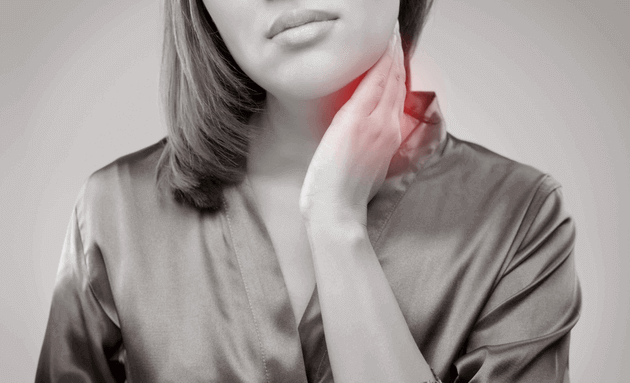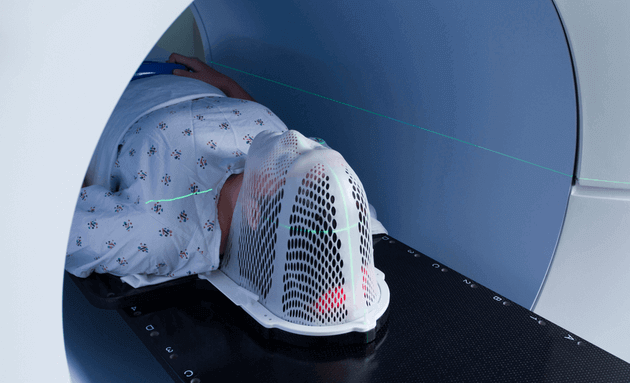
Nasopharyngeal Cancer: All You Need to Know About This Rare Head and Neck Cancer
The nasopharynx is located behind the nose, where it sits in the upper part of your throat and at the base of the skull. As you breathe naturally, air travelling from your nose moves through your throat and nasopharynx, into your lungs.
Cancers of the nasopharynx are considered to be rare in the West, although they are said to be more frequently occurring in areas of Southeast Asia, and Africa.
Nasopharyngeal cancer (or nasopharyngeal carcinoma) begins when certain genetic mutations or environmental factors cause the normal, squamous cells along the lining of the nasopharynx to grow uncontrollably, attack other surrounding cells, and metastasise, or spread onto other areas of the body via the lymph system, tissue, or the bloodstream.
What Causes Nasopharyngeal Cancer?

While medical studies are yet to establish the main cause of nasopharyngeal cancer, research has observed that there is a strong, DNA-based link between nasopharyngeal cancer and the Epstein-Barr Virus or EBV.
Other risk factors include:
- A steady consumption of rich, salt-cured fish and meat: When cooking salt-cured fish, meat or vegetables, the chemicals released in the steam can be carcinogenic to your nasal cavity. Exposure to these chemicals at an early age increases the risk of nasopharyngeal cancer.
- Ear, Nose and Throat conditions: Poor health, specifically related to long-term or chronic disorders of the ear, nose, and throat such as rhinitis (chronic blocked nose), otitis media (middle ear infections), and polyps, increases your vulnerability to the disease.
- Genetic factors: If you know of a family member or close relative who has suffered from nasopharyngeal cancer, or has other genes related to the development of cancer, you need to stay alert for any signs of the problem.
- Age and Gender: If you are male and aged between 30 to 50
- Environmental factors, such as ethnicity and diet: Having an ancestry that is North African, Chinese or Asian, or Inuit, that is, from Alaska or Canada, where there is a preference for salt-cured, and pickled foods, for example.
- Food and Drinking Habits: Excessive consumption of alcohol and tobacco, or smoking
- Occupational hazards: For example, long-term exposure to wood dust or a chemical called formaldehyde.
It is not easy to avoid some of the above risk factors such as ethnicity or genetic connections, but by maintaining a healthy diet and positive lifestyle, quitting habits such as smoking, or alcohol, and avoiding salt-cured foods, you can lower your risk of nasopharyngeal cancer effectively. Speak to your doctor if you suspect that you could be vulnerable to the disease, or if you experience any of the following symptoms.
What Are the Symptoms of Nasopharyngeal Cancer?

Signs and symptoms of nasopharyngeal cancer may include:
- A lump in the neck
- Recurring ear infections, and headaches
- Numbness or pain in the face
- Nosebleeds
- Difficulty in opening the mouth, and speaking
- A persistent sore throat, or stuffy nose
- Hearing loss, or tinnitus (constant ringing sound in the ear)
- Blurry vision
As you may have observed, these symptoms can be mistaken for a common cold or flu. However, if they have been persistent despite some medication, it is advisable to consult your doctor to rule out any deeper concerns.
How Can You Diagnose Nasopharyngeal Cancer?
If your symptoms are indicative of or suggest nasopharyngeal cancer, your doctor may refer you to an oncologist who will further examine you to confirm the diagnosis or rule out any other underlying conditions. Some of these tests may include:
- Nasoendoscopy: A thin, flexible endoscope is inserted through the nostrils into the throat. The endoscope functions as a telescope and has a light and camera at the end of it to help your doctor look for any possible abnormalities.
- Panendoscopy: Unlike a nasendoscopy which may or may not require a local anaesthetic, a panendoscopy uses a number of small rigid telescopes connected together, and maybe inserted through the nostrils under a general anaesthetic. A detailed examination of the throat and nose is then conducted.
- Biopsy: During the panendoscopy, a small tissue sample may be extracted from inside your nose and throat for further laboratory testing.
- Imaging scans: For example, ultrasound scans to test your lymph nodes if they are swollen, CT scans, PET (Position Emission Tomography) scans, or MRI scans to check the extent of cancer-related damage.
The results from these tests will help your oncologist or specialist doctor to determine if you do test positive for nasopharyngeal cancer, the stage of the disease and appropriate treatment for it.
What Are the Treatment Options for Nasopharyngeal Cancer

Depending on the stage of your nasopharyngeal cancer, there are three types of standard treatments used:
- Radiation therapy uses high-energy X-rays or other radiation types to kill the cancer cells or stop them from growing. For example:
- External-beam radiation therapy directs radiation from many different angles towards the cancer-affected area using an external machine that moves around the patient’s body. However, there is a possibility that this cancer therapy could affect the surrounding healthy tissues and glands as well, such as the thyroid gland.
- Intensity-modulated radiation therapy (IMRT) is a type of 3D radiation therapy that uses a computer to generate pictures of cancer or tumour. At varying degrees and intensities, thin beams of radiation are applied to the tumour. IMRT also has reduced chances of a dry mouth after the treatment.
- Stereotactic radiation therapy, stereotactic external-beam radiation therapy, or stereotaxic radiation therapy uses a machine to deliver several small doses of radiation directly to the affected part across many days.
- Internal radiation therapy uses needles, seeds, wires or catheters sealed with radiation that are directly placed near the cancerous area or on it.
- External-beam radiation therapy directs radiation from many different angles towards the cancer-affected area using an external machine that moves around the patient’s body. However, there is a possibility that this cancer therapy could affect the surrounding healthy tissues and glands as well, such as the thyroid gland.
- Chemotherapy uses drugs to arrest the growth of cancer cells or kill them.
- Systemic chemotherapy allows the drugs to reach cancer cells throughout the body through the bloodstream when injected into a vein or muscle or taken orally.
- Regional chemotherapy treats cancer cells by placing chemotherapy drugs directly into the cerebrospinal fluid, body cavity such as the abdomen, or any other organ.
- Adjuvant therapy follows radiation therapy to treat any cancer cells that are left untreated or to ensure that cancer does not return.
- Systemic chemotherapy allows the drugs to reach cancer cells throughout the body through the bloodstream when injected into a vein or muscle or taken orally.
-
Surgery is generally the least considered treatment option for nasopharyngeal cancer, considering the precarious location of the tumour or cancer. An operation or surgery in such a situation is tricky and challenging, as it may cause permanent damage to the eye, nerves, and blood vessels around the nose and throat.
However, if your body does not respond to radiation therapy, or if cancer has spread to your lymph nodes, your doctor may want to use surgery to remove the lymph nodes in your neck.
Treatment plans may also include:
- Biologic drugs: In cases where the cancer is advanced or recurs, your doctor may prescribe you a course of monoclonal antibodies that support the body’s immune system.
- Palliative therapy: If chemo or radiation therapy is not an option for you, your doctor may suggest palliative therapy in order to control your symptoms of cancer and make you comfortable.
Treatment for nasopharyngeal cancer may leave you with some unwelcome side effects such as inflammation in the throat, or a dry mouth leading to a rise in infections, difficulties in swallowing food and speaking.

Talk to your doctors about what can relieve your post-treatment conditions. For example:
- Rinse your mouth with warm salt-water after meals
- Choose moist foods and avoid acidic, dry or spicy food and drinks
- Brush your teeth more often during the day
Getting diagnosed with any type of cancer or health condition may leave you feeling helpless and losing control over your own body. This can be helped if you learn as much as you can about your condition to feel confident about facing it positively. Talk to your family for emotional support, as well as your doctor. Take care by taking necessary preventive measures such as a healthy diet, and being physically active to avoid further complications.






